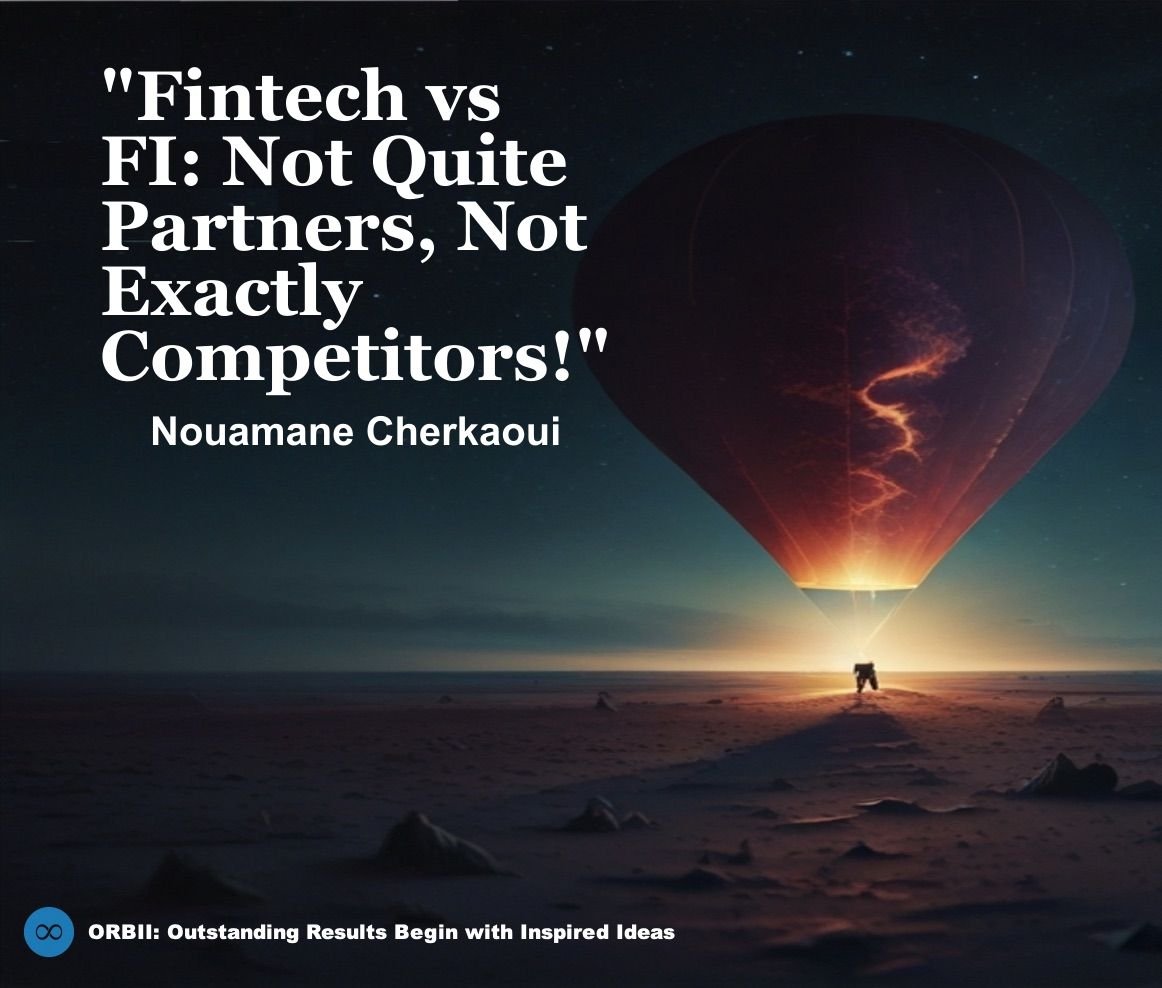Fintech vs FI: Not Quite Partners, Not Exactly Competitors!
The fintech hype of recent years once predicted an imminent disruption of traditional financial institutions worldwide. FinTechs were expected to transform the banking sector, offering consumers a new level of convenience and free services without the usual fees. Rapid growth in the fintech industry positioned it as the preferred provider for key financial services like crowdfunding platforms, online portfolio management, mobile payment solutions, lending, and payments.
I recognize that I once held the view that incumbent banks and insurers were gradually catching up with a growing technological gap, one that had been widening since the rise of fintech’s. While new startups offered their young and tech-savvy clients the innovation they expected, the shockwave of the COVID-19 crisis affected both banks and fintech’s. However, the impact was more severe for many startups, leading to slower commercial growth and funding challenges.
While large financial institutions prioritized their own digital transformations, global FinTech funding did not diminish. On the contrary, record-breaking deals emerged despite the challenges.
Global FinTech Funding Landscape
The United States still concentrates more than half of the fundraising. However, venture capital funding for fintech startups globally plunged 49% year-over-year to $23 billion in the first half of 2023. Europe comes in second place with 22% of FinTech fundraising, including companies like Klarna and Ki. In France, Qonto raised €552 million in early 2022, maintaining its independence.
What Has Changed in the Relationship Between Financial Institutions and FinTech’s?
- Collaboration and Partnerships: Traditional financial institutions have recognized the potential of fintech companies to enhance services and improve operational efficiency. BFSI acquisitions of fintech’s are common, though not always successful.
- Regulatory Changes: Regulatory bodies, like those behind PSD2 in Europe, have fostered innovation while ensuring consumer protection. FinTech companies must comply with increased security requirements.
- Data Sharing and APIs: Open banking has encouraged secure data sharing between financial institutions and fintech companies through APIs.
- Customer Experience: FinTech’s have raised the bar for user experience, pushing traditional financial institutions to invest in technology to compete.
- Innovation in key areas such as payment services, wealth management, and lending has been a driving force of this shift.
Why Have FinTech’s Struggled to Compete with Incumbent Banks and Insurers?
FinTech’s face several challenges despite their initial disruptive promise:
- Regulatory barriers can be time-consuming and costly.
- Capital requirements: Traditional institutions can out-invest startups.
- Trust and reputation: Long-standing banks have built trust over decades.
- Customer acquisition costs are high for fintech’s compared to traditional banks.
- Network effects and risk management remain strongholds of incumbents.
FinTech’s and Financial Institutions: From Competition to Collaboration
The relationship between fintech and traditional financial institutions has evolved through several stages:
- Competition (Early Stage): Early fintech’s aimed to disrupt the financial sector.
- Transition (Middle Stage): Fintech’s began forming partnerships and were acquired by banks.
- Collaboration (Current Stage): Initiatives like Open Banking and fintech ecosystems have fostered coopetition, where both sides benefit from each other's strengths.
Benefits of Collaboration
- Synergy: Collaboration allows fintech’s to leverage traditional institutions' scale and resources, while banks benefit from fintech innovation.
- Expanded Services: Customers gain access to innovative financial products.
- Regulatory Compliance: Collaboration helps fintech’s navigate complex regulations.
- Risk Mitigation: Banks diversify risks by partnering with fintech’s.
Challenges and Risks of Coopetition
- Cultural Differences: FinTech’s' agile culture can clash with banks' more risk-averse nature.
- Data Security: Ensuring privacy and security is essential in these collaborations.
- Competitive Pressures: While collaboration is beneficial, competition remains in certain areas.
In conclusion, the fintech landscape has evolved from fierce competition to a more collaborative approach, driven by regulatory changes, customer demand for innovation, and mutual recognition of each side’s strengths. Fintech has played a pivotal role in accelerating digital transformation investments in financial institutions.
AI: The Next Frontier in FinTech and Financial Services Collaboration
AI is becoming a privileged way to innovate for both financial services and FinTech’s, enabling them to tackle new challenges and enhance automation, cost optimization, and customer experience.
References:
- S&P Global
- FT Partners, FinTech Insights
- TechCrunch
- Cambon Partners and 2CFinance, Covid-19 – Étude d’impact sur les start-up, April 2020
- FinTech News
Licence: This article is published under the MIT Licence.



